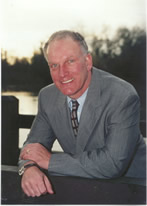What's Wrong With America-Ideology and Injustice Collide
Let's consider what makes this time slightly different than previous times of unrest. The essential facts are that most Americans are suffering through the deepest economic depression since the 1930s. We barely avoided a complete economic collapse and may still see an economic collapse if the euro fails. With so many homes worth less than the loans against them, the American consumer economy is simply upside down. This is unique in our history-unprecedented home ownership with unprecedented loss of value. Second, the disparity in wealth between the top 1% and rest of American society is huge. Although wealth disparity has occurred in the past, this time around it is highly noticeable because of the media. There is also a complete social disconnect between the elite wealthy segment of society and everyone else. The very wealthy just do not understand the economic pain of the average American.
In terms of distributive justice, America is out of balance. Distributive justice is based on a three-legged stool of equity, equality, and need. Equity says that we should be rewarded based on our contributions. The more profits I make, the more I should be paid. Equality says that as equal members of our society, we should all be entitled to an equal share of the benefits. Need says that there are some in our society-the young, the sick, and the elderly-who cannot take care of themselves and must therefore be supported. This idea of distributive justice is very basic. Imagine an extended family 150,000 years ago. You go out and slay the wooly mammoth and drag big parts of it back to the fire. Equity says that you get the first, choicest haunch because you undertook the effort and risk to kill the mammothand drag it back to the campfire. Equality says that each adult member of the tribe gets a fair share for being a contributing part of the group. Need says that the children, the elders, and the sick get a share because the well-being of the group requires it. As long as the wooly mammoth is divided with these ideas in mind, everyone feels a sense of justice. Unfettered capitalism gives equity primacy in policy making. Unfettered socialism gives equality primacy in policy making. Neither system works without controls to keep all three legs in balance. This is the essential truth missed by politicians-there has to be balance between equity, equality.
If any of these legs gets out of balance, we experience a sense of injustice. That is what is occurring now in America. The wealthy and the anti-tax Republicans feel a deep sense of injustice that the profits they reap from their efforts are not being properly rewarded. The vast majority of Americans feel that, as equal members of society, they have been abandoned economically by the wealthy. All the money seems to flow to the top of the economic pyramid. Many Americans, wealthy and not, feel like the entitlement programs for the needy are taking up too much resource. So, the result is a feeling of deep and abiding injustice on all sides. There is no right or wrong answer here. What is needed is a recognition in Washington of this sense of injustice. The Republicans and Democrats should be engaging in a reasoned, civil dialogue that results in policy decisions that balance equity, equality, and need to the general satisfaction of the American people.
In terms of the future of America, there are reasons for optimism. Fundamentally, as long as we maintain the Constitution without significant power imbalances and as long as we protect the Bill of Rights, we will prosper. We have huge resources, an innovative workforce, and a large protected land mass. The pressing needs for the future include making sure that every child has food, shelter and safety, is well-educated, and has economic and social opportunity. We must revert back to teaching critical thinking through science, mathematics, and language skills so that our children can deal with the ambiguity and complexity of the modern world.
We have to tax ourselves to invest in infrastructure. We have to debate the need for a military that costs fifty cents out of every federal tax dollar we pay out. We have to make hard policy choices and compromise where we can.
What will kill us is decisions driven by mindless ideologies, left or right, that focus on protecting power, position, and privilege. That attitude, now prevalent in political circles, will surely destroy us because we will not be able to respond to the rapidly changing world environment. The American people will have a choice in November 2012 between ideology and compromise. We shall see how they choose.
Douglas Noll, has mediated over 400 difficult and complex conflicts including employment disputes (gender discrimination, racial discrimination, wrongful termination) construction defect cases, complex commercial and industrial construction disputes, CERCLA claims, partnership dissolutions, water rights disputes, shareholder disputes, intellectual property litigation, constitutional law cases, land use disputes, financial and commercial disputes, crop losses, estates and trusts litigation, and insurance disputes.
©Copyright - All Rights Reserved
DO NOT REPRODUCE WITHOUT WRITTEN PERMISSION BY AUTHOR.









